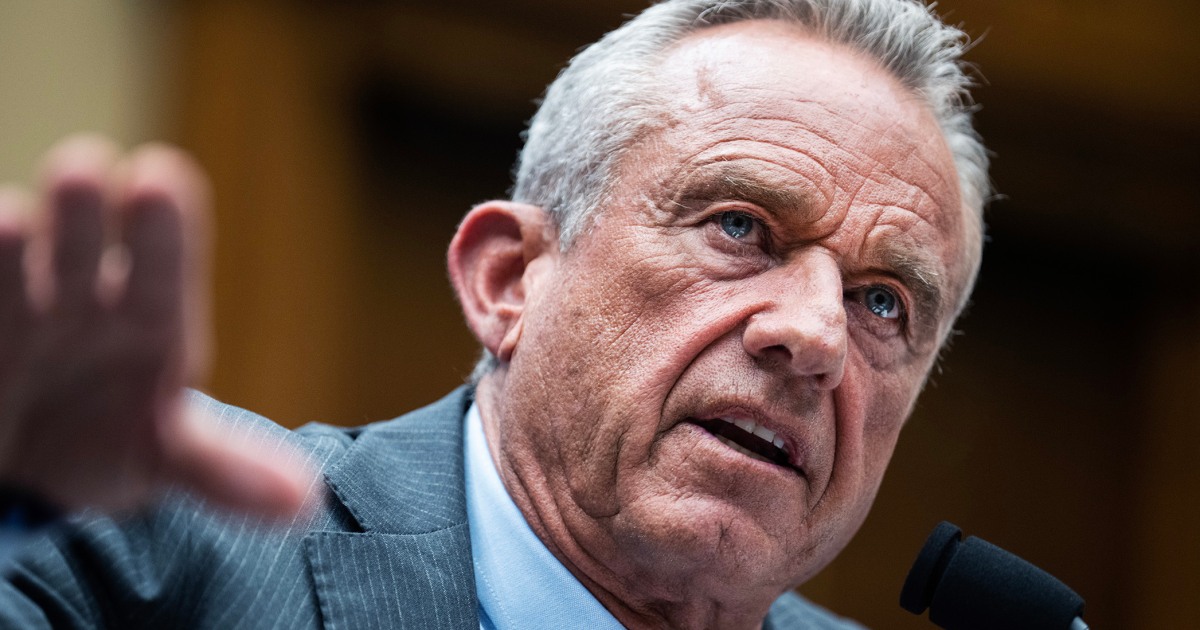President Trump said in a social media post on Thursday that he is willing to exempt the agriculture and hotel industries from his nationwide immigration crackdown. The surprise move came after executives in both industries complained to Trump about losing reliable, longtime immigrant workers in immigration raids and struggling to replace them.
“Our great Farmers and people in the Hotel and Leisure business have been stating that our very aggressive policy on immigration is taking very good, long time workers away from them, with those jobs being almost impossible to replace,” Trump wrote.
“In many cases the Criminals allowed into our Country by the VERY Stupid Biden Open Borders Policy are applying for those jobs,” Trump added. “This is not good. We must protect our Farmers, but get the CRIMINALS OUT OF THE USA. Changes are coming!”
The New York Times reported the following day that a senior Immigration and Customs Enforcement official had ordered a pause in immigration raids of agricultural businesses, meat packing plants, restaurants and hotels.
The senior ICE official also advised agents to stop arresting undocumented people who are not known to have committed a crime. Agents were told to continue to investigate and detain undocumented people with criminal backgrounds, according to the New York Times.
In response to a question from NBC News regarding Trump’s pause, Department of Homeland Security spokeswoman Tricia McLaughlin did not dispute it. “We will follow the president’s direction and continue to work to get the worst of the worst criminal illegal aliens off of America’s streets,” McLaughlin said in a statement.
An immigration crossroads
The potentially significant change in the administration’s approach to immigration comes as Trump faces a political crossroads. Immigration raids in Los Angeles sparked days of violent protests there and helped fuel sweeping anti-Trump protests nationwide on Saturday.
At the same time, Trump repeatedly promised his supporters during the 2024 campaign that he would deport a million people a year, the largest mass deportations in U.S. history.
To meet that goal, White House Deputy Chief of Staff Stephen Miller demanded last month that ICE arrest at least 3,000 undocumented people a day.
Three former DHS officials told NBC News that ICE officials will have to significantly increase raids of large workplaces nationwide to meet those goals. Those sites include farms, meat-packing plants, hotels and restaurants — the industries that Trump appears to have exempted.
One former ICE official said that only raids on “construction, dairy [and] meat processing facilities, carpet mills” would result in the large number of detentions Miller has demanded. “It’s these low-wage jobs, that is where you get the numbers,” the former official said.
During the 2024 campaign and since taking office, Trump has dismissed warnings from experts that such large-scale deportations would lead to worker shortages in the industries he is apparently exempting now.
But groups that support Trump’s crackdown expect him to keep his promise.
“They should be going after them,” said Ira Mehlman, spokesperson for Federation for American Immigration Reform, a group that supports a crackdown on undocumented workers. “I don’t think there is going to be a huge swath of the country that will be upset if they bust these companies, if they are employing illegal immigrants and passing on the cost to everyone else.”

Targeting slaughterhouses
For years, slaughterhouses have been one of the industry’s best known for relying on newly arrived immigrant labor, in part, due to the difficult and dangerous nature of the work. And many slaughterhouses are located in red states scattered throughout the Midwest and Southeast. Texas alone has almost 500 meat and food processing plants, according to USDA data.
Earlier this week, ICE agents raided a locally owned slaughterhouse in Omaha, Nebraska and arrested at least 80 undocumented workers, according to local officials.Chad Hartmann, a spokesperson for Glenn Valley Foods, said in a statement that federal agents searched the company’s facility “for persons believed to be using fraudulent documents to gain employment.” He said that the company strives to operate within the law, that it is cooperating with agents and that it “is not being charged with any crime.”
But so far large slaughterhouses have not been consistently targeted by ICE around the country.
Since Trump took office in January, ICE’s workplace enforcement raids appear to have largely targeted smaller businesses such as a roofer in Bellingham, Washington, a Mexican restaurant in Harlingen, Texas and a small equipment manufacturer in South Dakota. One of the largest workplace raids to date — which yielded more than 100 arrests —was of a construction site in Tallahasseeoverseen by a privately-owned Florida-based construction company.
Larry Stine, an employment attorney who represents some of the largest meat-packing plants in the Southeastern United States says his clients are “terrified” of a possible raid and have been actively conducting audits of their employees’ paperwork.
Few construction industry raids
Trump did not mention an exemption for the construction industry, which also employs large numbers of immigrant workers. So far, though, the construction industry has experienced relatively few ICE raids, industry officials said.
Brian Turmail, vice president of public affairs for the Associated General Contractors of America, said that to date, he is only aware of sporadic reports of construction-site raids, such as one in Tallahassee on May 29 where more than 100 allegedly undocumented individuals were detained.
The contractors’ association continues to prepare members for how to respond if the pace of enforcement actions increases. “We’ve been reposting compliance information now that it’s a bit more real,” Turmail said.
Turmail said he remains confident that the president is sensitive to the needs of the construction industry, whose decades-long workforce shortage has only grown more acute in recent years. It’s one reason why construction costs have been surging, he said, something that, in turn, has resulted in construction spending declining year on year for the first time since 2019.
“Between higher labor and higher material costs, it’s putting developers on the sidelines because projects don’t pencil out anymore,” Turmail said.
Members of the contactors’ association remain hopeful that the administration’s promises to reorient more of the workforce toward vocational skills will turn into federal spending to do so.
Turmail predicted that worker shortages will persist and likely worsen if the immigration crackdown continues. One way the administration could help address them, he added, would be creating ways for construction workers to enter the country legally.
“Even if we got all the funding we wanted, we’d still need to also find some temporary lawful pathways for people to come in and work in construction,” Turmail said.
Democrats say Trump’s campaign promises of millions of mass deportations are hitting economic realities. John Sandweg, who served as ICE director during the Obama administration, said that to maintain its 3,000 arrests per day quota, the Trump administration would have to raid factories owned by large corporations. “No doubt some Fortune 500 will get hit,” he said.








